Vogtle-4 reaches testing milestone
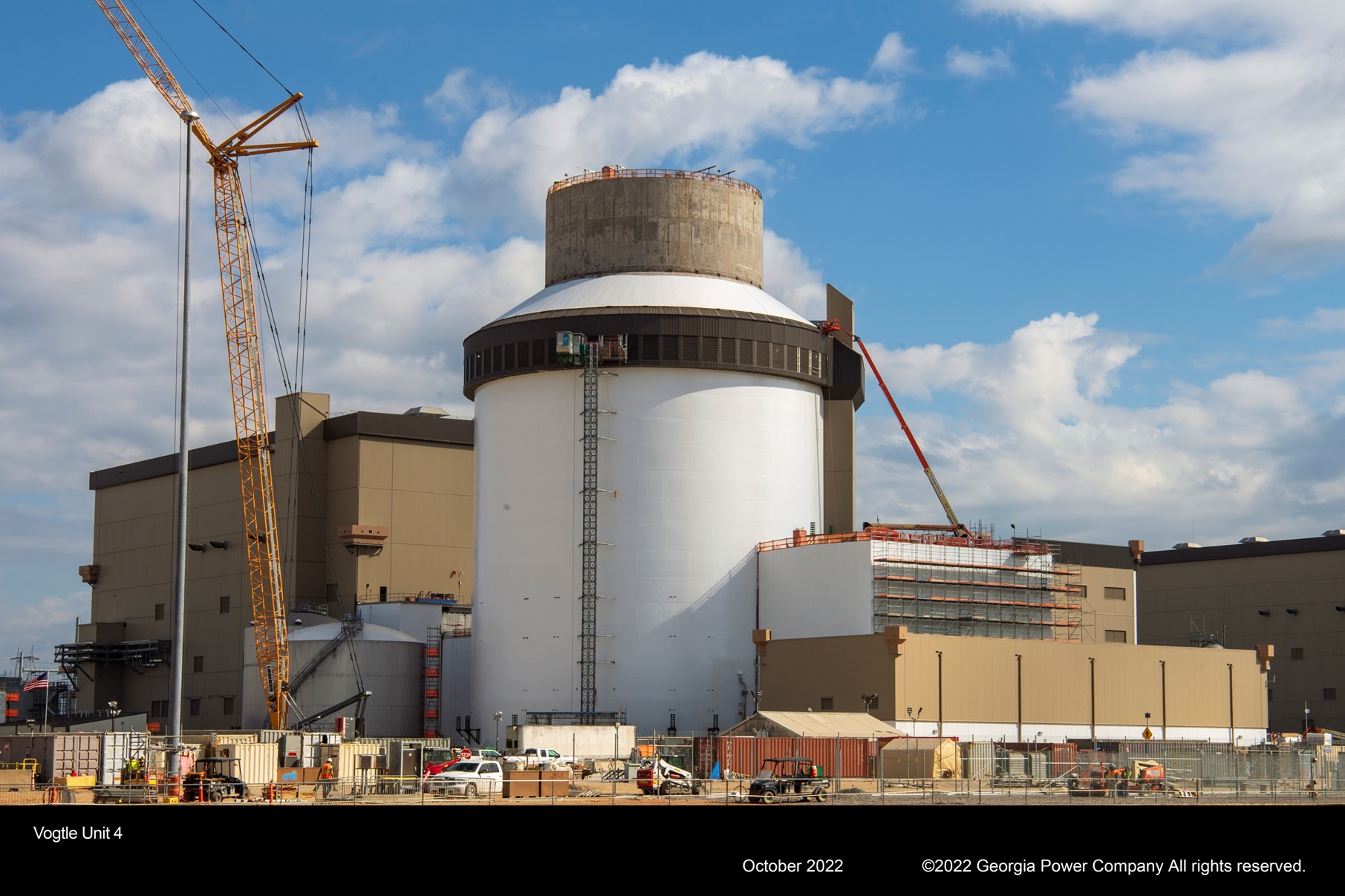
Cold hydro testing of Unit 4 at the Vogtle plant’s nuclear expansion site has been completed, Georgia Power announced on December 7.


Cold hydro testing of Unit 4 at the Vogtle plant’s nuclear expansion site has been completed, Georgia Power announced on December 7.
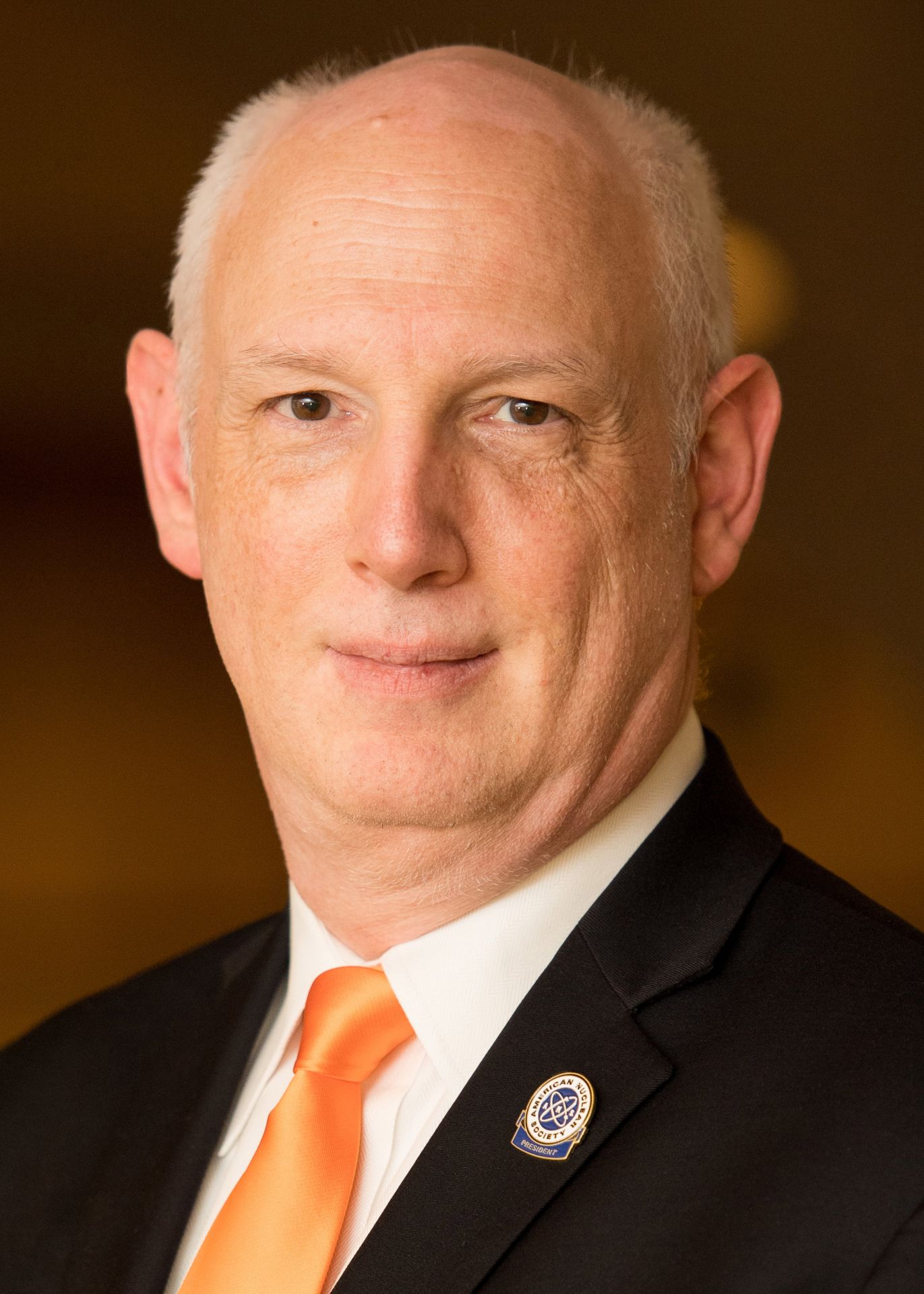
Steven Arndt
president@ans.org
For years the U.S. nuclear industry has done an outstanding job keeping plant availability high while simultaneously continuing to improve safety and economics. With capacity factors averaging more than 90 percent, you would think that no one would shut down an operational nuclear power plant. But that is what we have seen in a number of cases. Fortunately, this now seems to be changing. As I write this column, Diablo Canyon’s new life extension application has just been submitted to the Nuclear Regulatory Commission for review, and the Department of Energy’s program to support continued operation of nuclear power plants is providing hope that current plants will continue to have the opportunity to demonstrate their operational excellence.
How did we get here? When I ask this question—both of myself and the industry as a whole—I envision this as two sides of the same coin. Through the efforts of many we have improved our financial and economic viability, but challenges remain because the full value proposition of nuclear energy has not been realized.
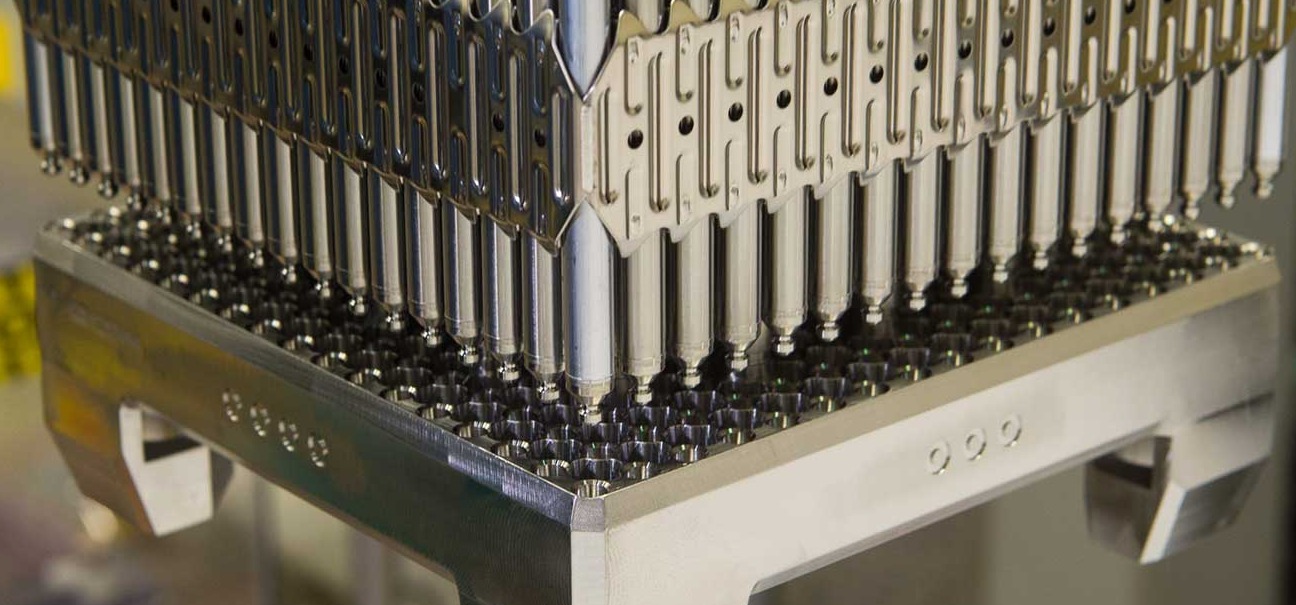
Framatome has completed the second 18-month cycle of its GAIA Protect Enhanced Accident Tolerant Fuel (EATF) technology at Vogtle’s Unit 2 in Waynesboro, Ga. Inspections afterward revealed that the full-length chromium-coated fuel rods maintained their original characteristics, while the chromia-enhanced pellets operated as designed during 36 months of reactor operation.
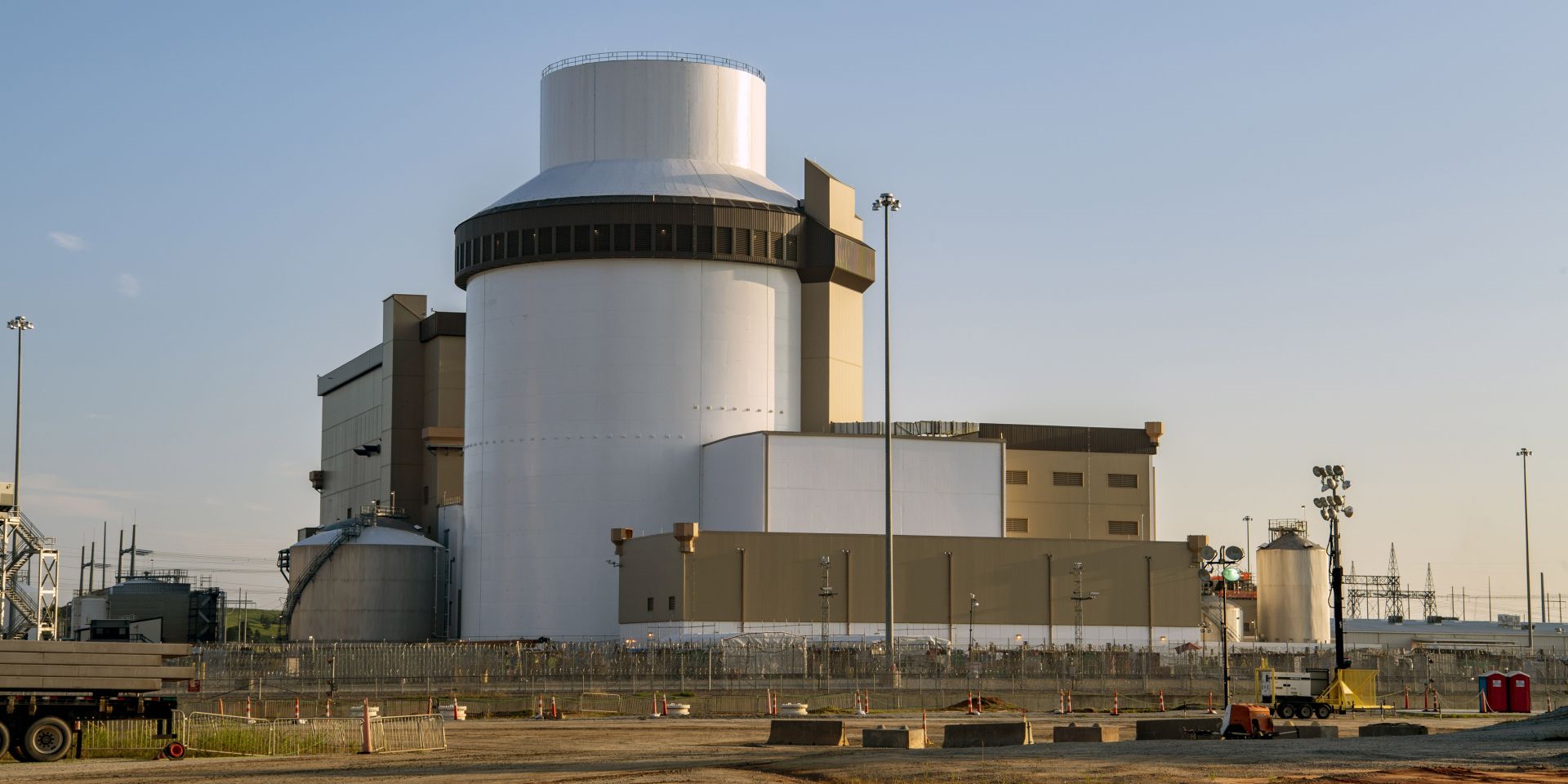
Georgia Power announced this morning that fuel loading at Vogtle-3 has commenced, marking an important milestone on what has proved to be a long and bumpy road to startup and commercial operation of the first new nuclear power reactors to be built in the United States in more than three decades. (Major work on the Vogtle-3 and -4 project began in 2012, with a price tag of $14 billion and scheduled unit start dates of 2016 and 2017. The project’s total cost is now expected to exceed $30 billion.)
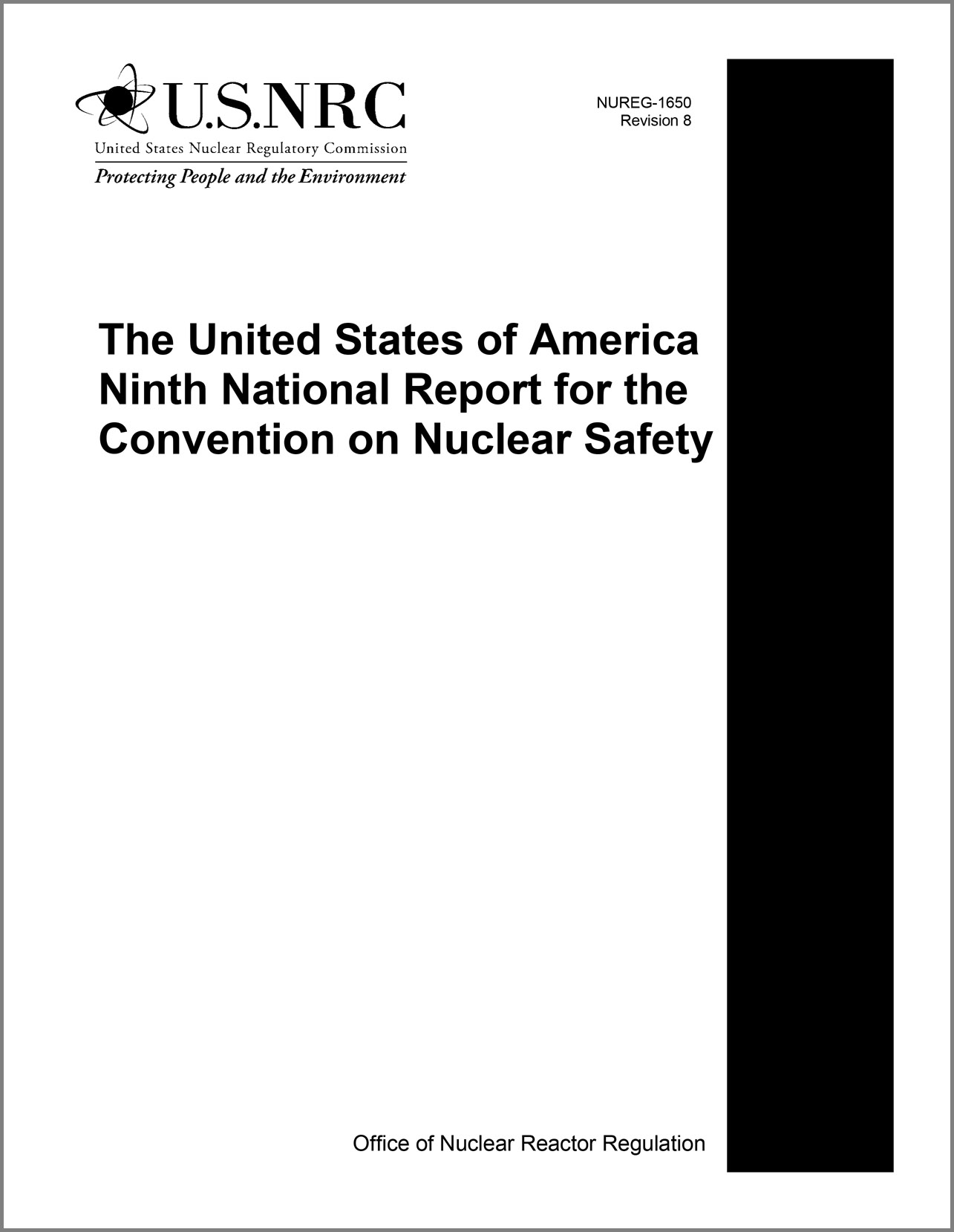 The Nuclear Regulatory Commission last Friday announced the publication of its ninth report to the Convention on Nuclear Safety, describing the federal government’s actions under the convention to achieve and maintain safety for the nation’s nuclear power reactor fleet.
The Nuclear Regulatory Commission last Friday announced the publication of its ninth report to the Convention on Nuclear Safety, describing the federal government’s actions under the convention to achieve and maintain safety for the nation’s nuclear power reactor fleet.
An International Atomic Energy Agency treaty, the Convention on Nuclear Safety was adopted in 1994 and entered into force in 1996. In 1999, it was ratified by the U.S. Senate.
The aim of the convention, according to the IAEA, is to “commit contracting parties operating land-based civil nuclear power plants to maintain a high level of safety by establishing fundamental safety principles to which states would subscribe.” Signatories are required to submit reports for peer review at meetings held every three years.
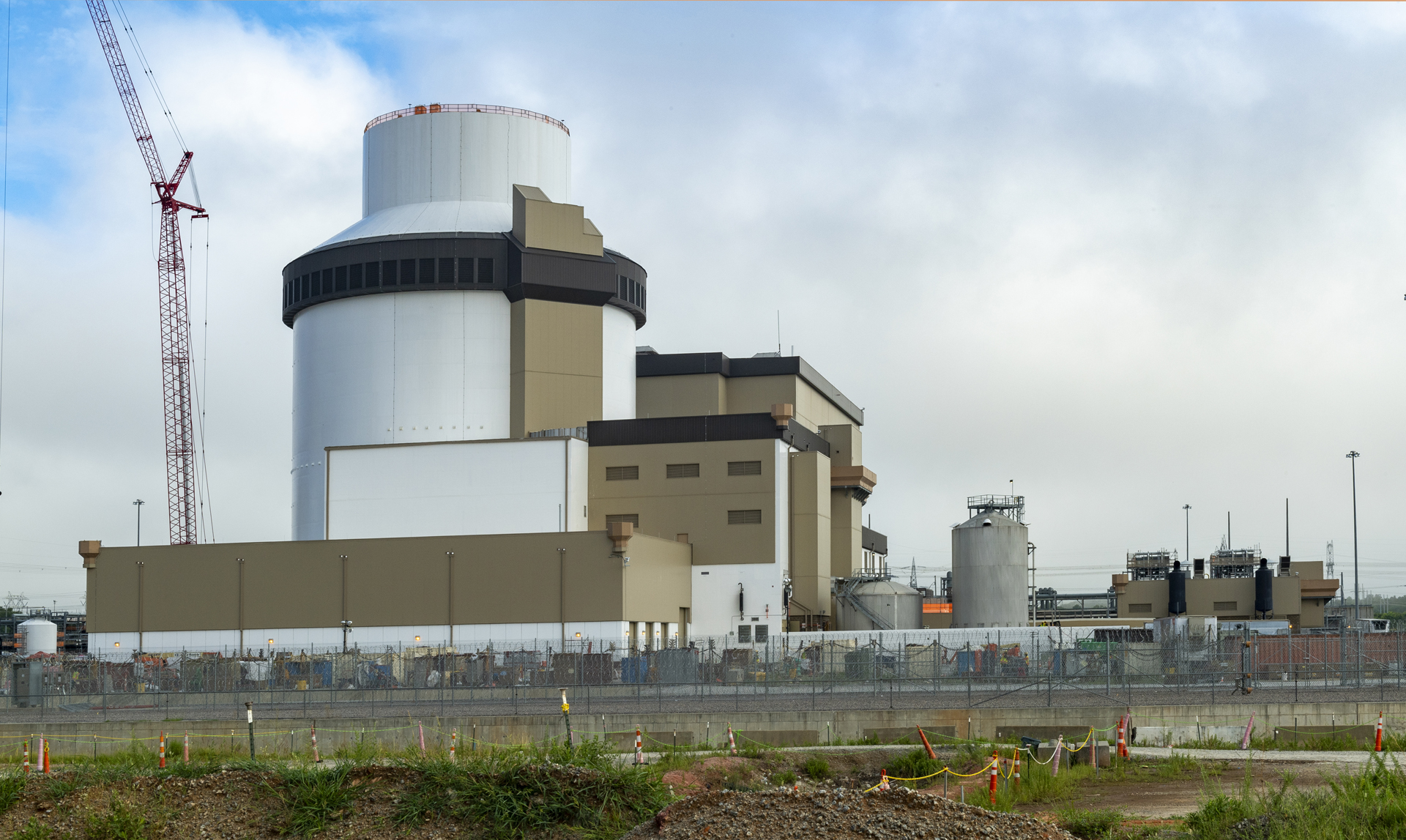
The Nuclear Regulatory Commission has authorized Vogtle plant operator Southern Nuclear to load fuel and begin operation at Unit 3—the first reactor to reach this point in the agency’s combined license process. (Prior to 1989, reactors were licensed under a two-step process, requiring both a construction permit and an operating license.)
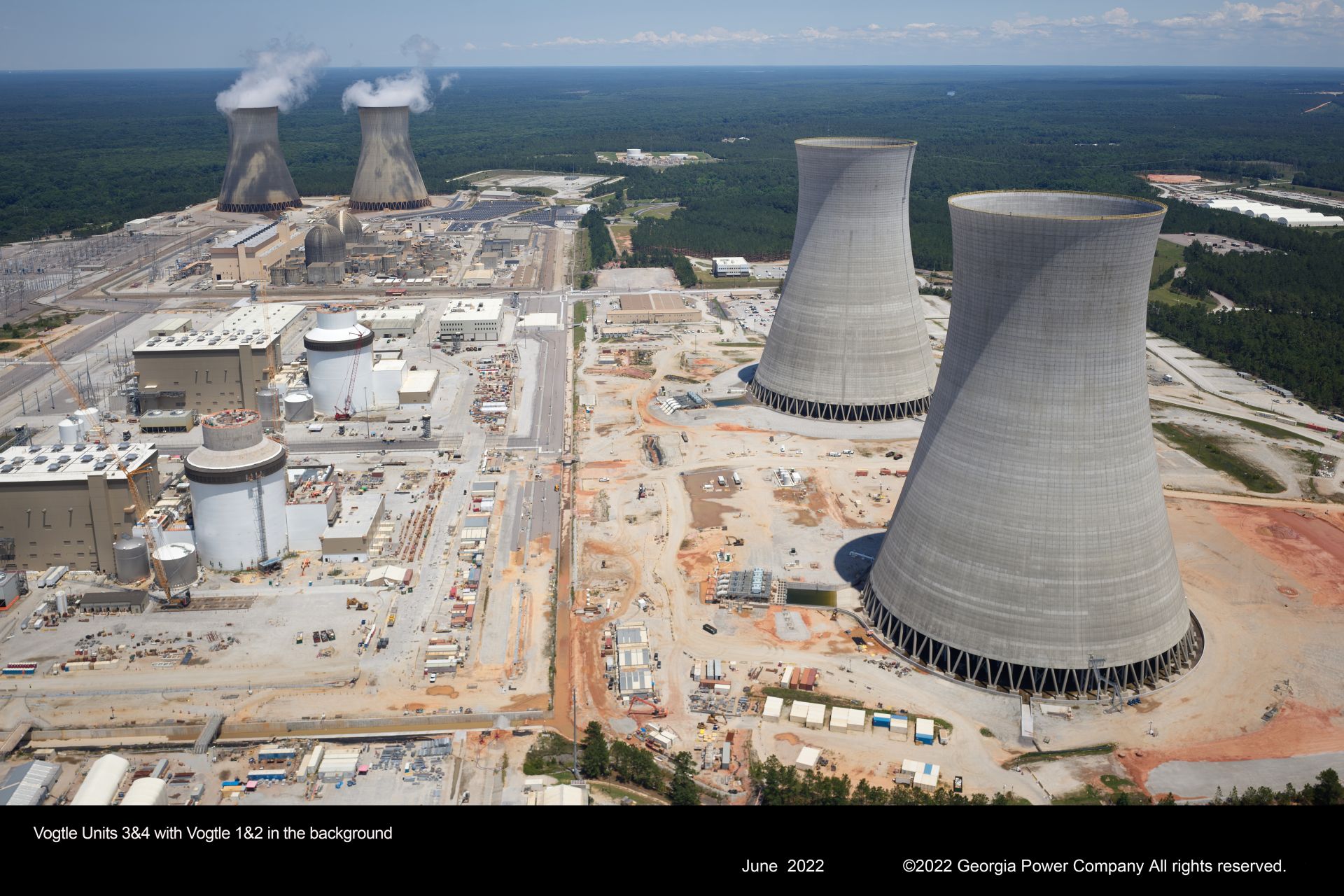
Both Oglethorpe Power Corporation and the Municipal Electric Authority of Georgia (MEAG), two co-owners of the Vogtle nuclear plant, have filed lawsuits against Southern Company subsidiary Georgia Power, the facility’s primary owner.
Oglethorpe and MEAG are 30 percent and 22.7 percent owners, respectively, of Vogtle. Georgia Power holds a 45.7 percent share. (Dalton Utilities, which owns 1.6 percent of the plant, is not involved in the suits.)
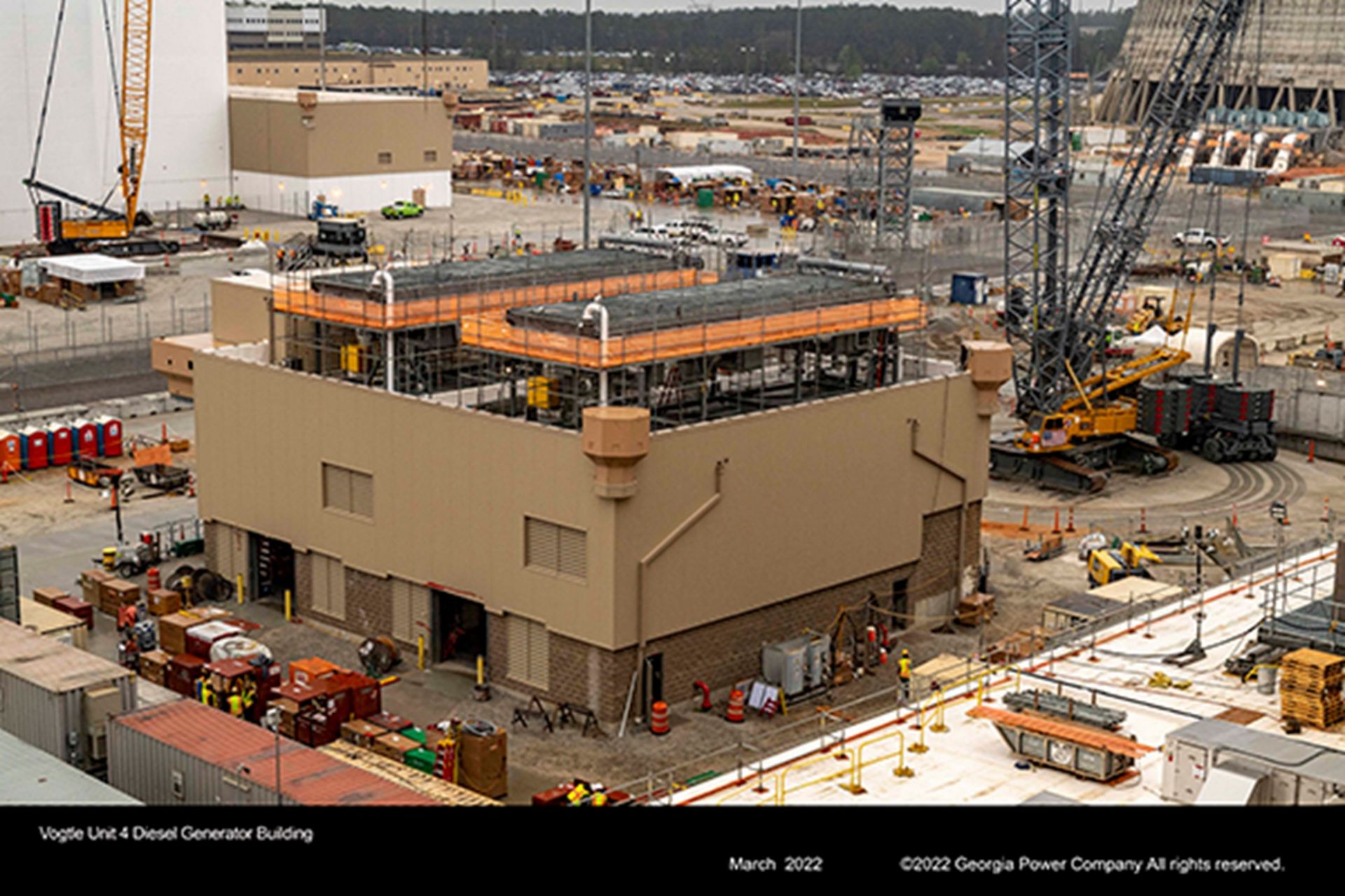
The total bill for the reactor expansion project at the Vogtle nuclear plant in Georgia is now expected to exceed $30 billion, according to the Associated Press. The original price tag for the two Westinghouse AP1000 units was $14 billion.
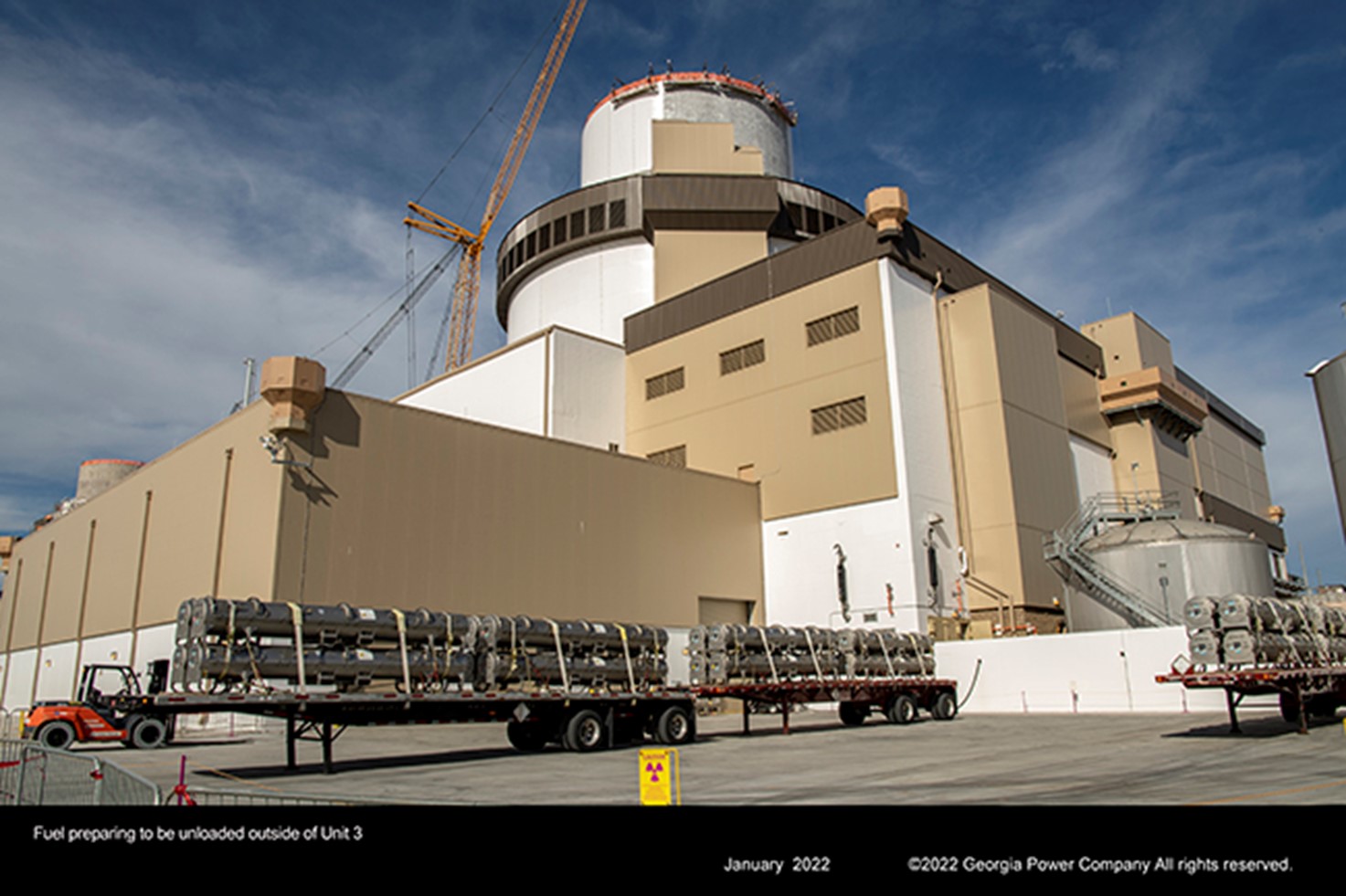
Commercial operation dates for the two new reactors under construction at the Vogtle nuclear plant have been pushed back yet again, adding to the project’s total cost, Southern Company announced last week. The Vogtle plant is near Waynesboro, Ga.
During its February 17 fourth-quarter earnings call, Southern reported that the projected start dates for both reactors were being extended by three to six months. Vogtle-3 is now expected to begin providing electricity to Georgians in the fourth quarter of 2022 or first quarter of 2023, with Vogtle-4 coming on line in the third or fourth quarter of 2023.
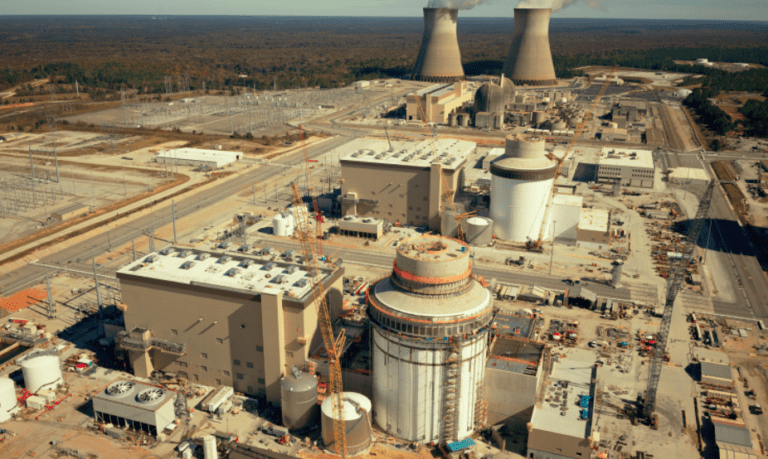
A spokesperson for Georgia Power has confirmed that the projected in-service date for the new Vogtle-3 reactor remains the third quarter of 2022, according to an article published on January 27 on the Power magazine website. The in-service date for Vogtle-4 is targeted for the second quarter of 2023, the spokesperson said.

Westinghouse Electric Company and Southern Nuclear have agreed to a plan to install four Westinghouse lead test assemblies in Vogtle-2, a 1,169-MWe pressurized water reactor located in Waynesboro, Ga. Four lead test assemblies containing uranium enriched up to 6 percent U-235 will be loaded in Vogtle-2 in 2023, marking the first time that fuel rods with uranium enriched above 5 percent U-235 are put in use in a U.S. commercial power reactor.
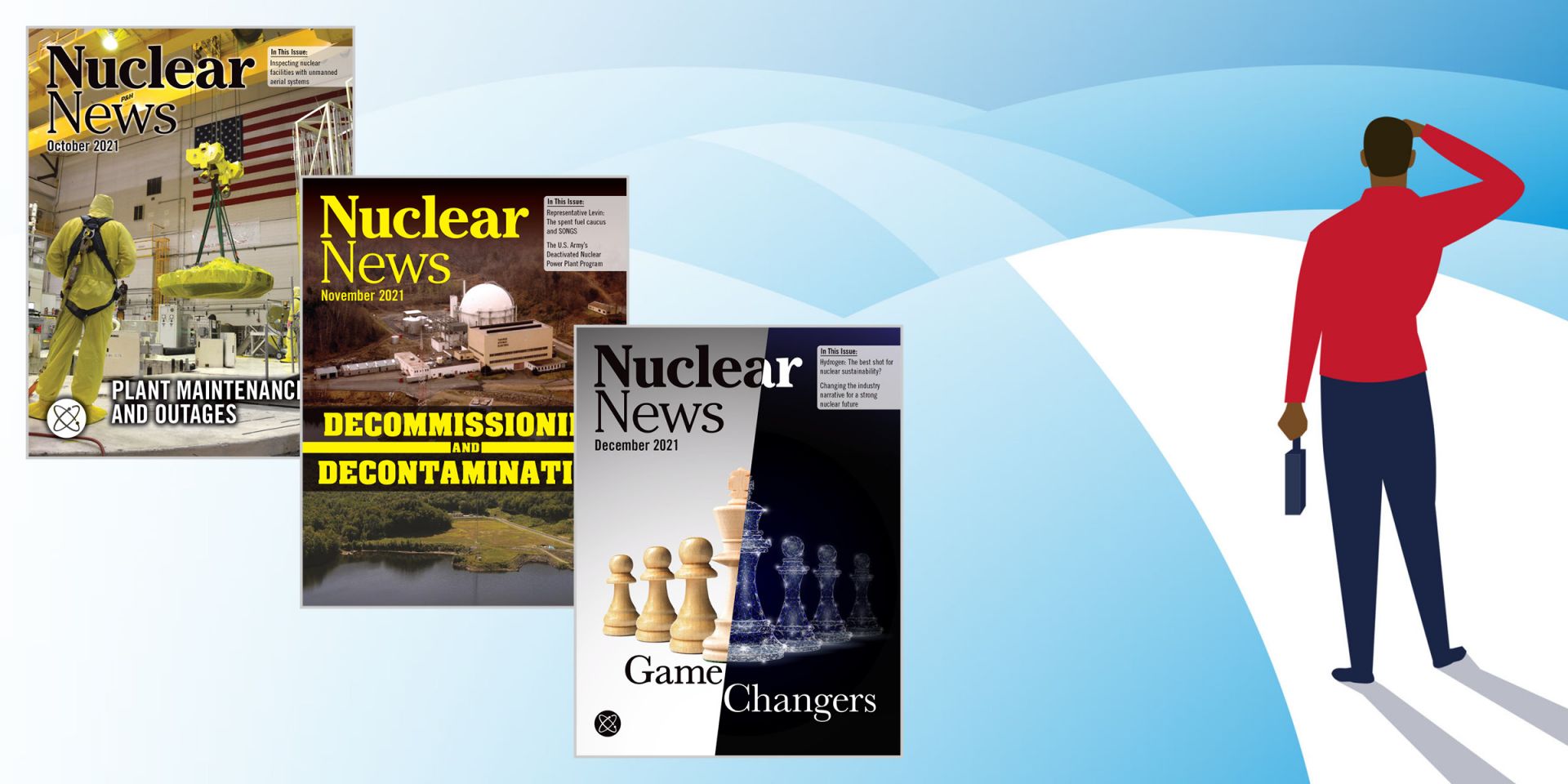
This is the fifth of five articles posted today to look back at the top news stories of 2021 for the nuclear community. The full article, "Looking back at 2021,"was published in the January 2022 issue of Nuclear News.
Quite a year was 2021. In the following stories, we have compiled what we feel are the past year’s top news stories from the October-December time frame—please enjoy this recap from a busy year in the nuclear community.
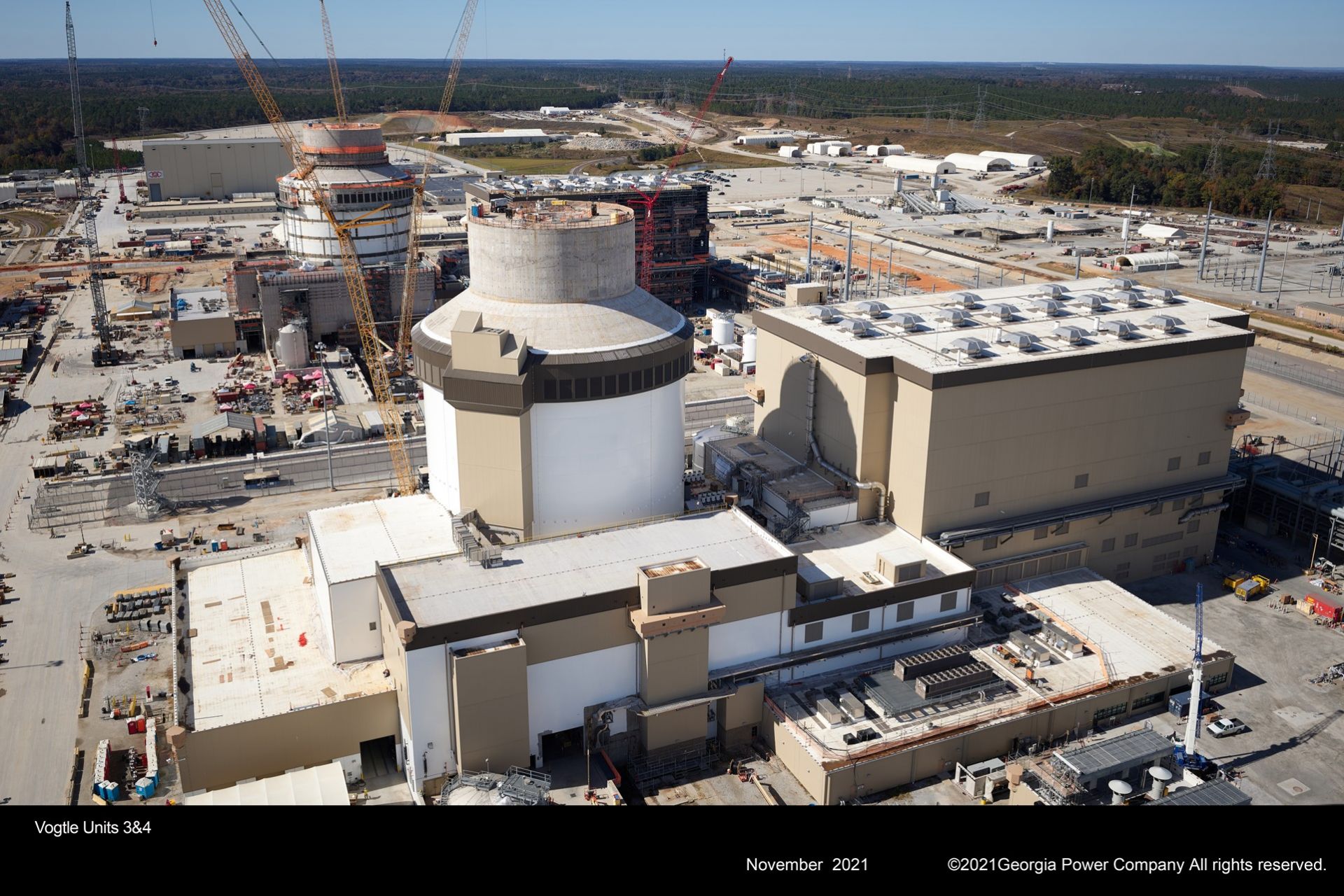
Georgia Power has revised the projected commercial operation dates for Vogtle-3 and -4 a total of four times this year—most recently in October—but some experts are saying that at least one more delay is probable.
 and containment (right).jpg)
The Nuclear Regulatory Commission will increase its oversight of Vogtle-3—one of the two Westinghouse AP1000 reactors under construction at the Vogtle nuclear power plant in Waynesboro, Ga.—after finalizing two inspection findings involving the unit’s safety-related electrical cable raceway system. Vogtle’s operator, Southern Nuclear, was informed of the decision in a November 17 letter.
The agency had launched a special inspection at Vogtle-3 in June of this year to determine the cause and extent of construction quality issues in the raceway system, which consists primarily of conduits and cable trays designed to prevent a single event from disabling redundant safety-related equipment.
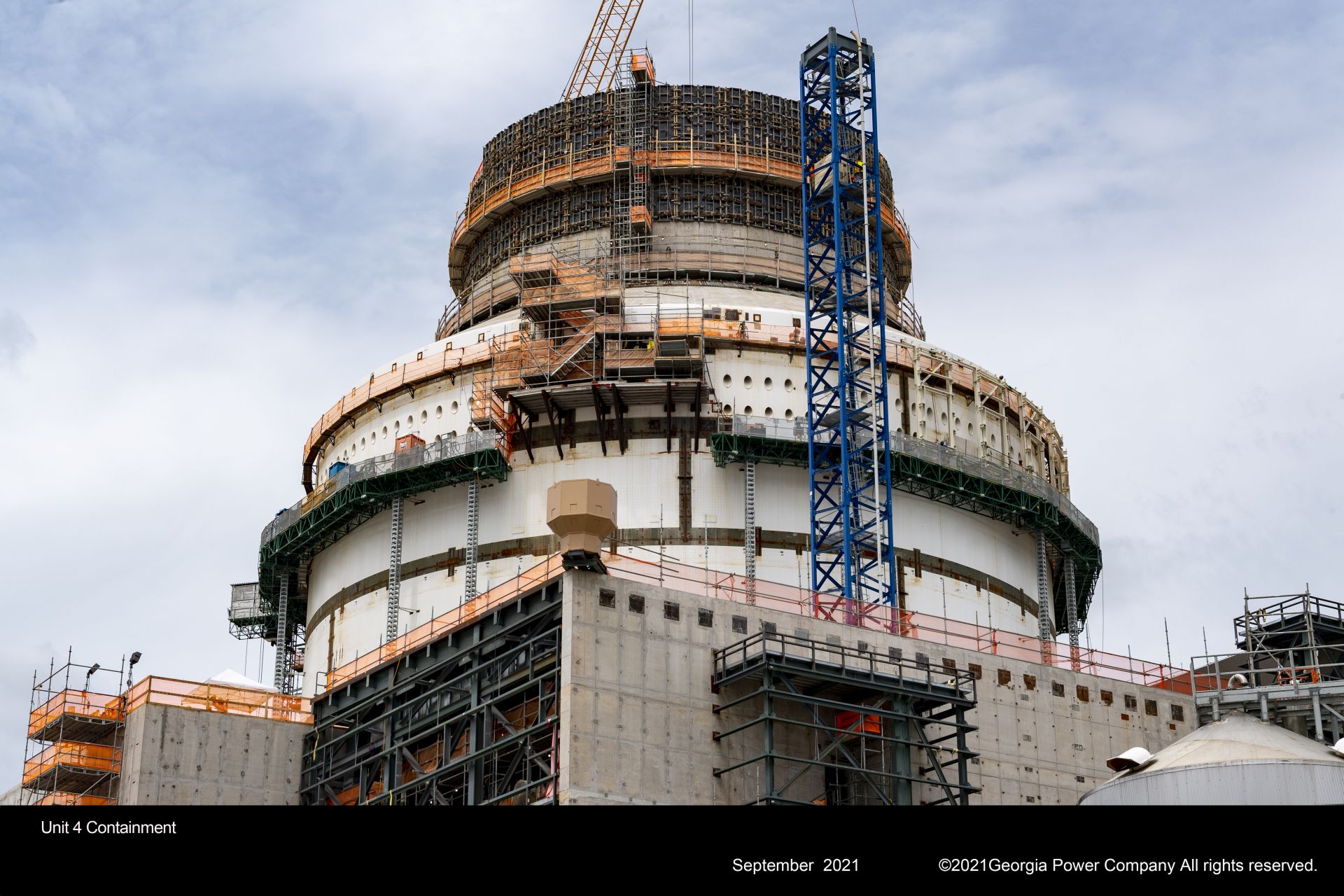
In what has become for nuclear advocates an all-too-familiar refrain, Georgia Power has made another revision to the Vogtle nuclear expansion project schedule. The company now predicts a Unit 3 in-service date in the third quarter of 2022 and a Unit 4 in-service date in the second quarter of 2023, representing a three-month shift for each unit.
 and -4.jpg)
Oversight of the Vogtle nuclear new-build project will be increased if the preliminary conclusions in an August 26 Nuclear Regulatory Commission special inspection report are finalized.
Conducted from June 21 to July 2, the inspection looked into the cause and extent of construction-quality issues in the safety-related electrical cable raceway system at Vogtle-3.
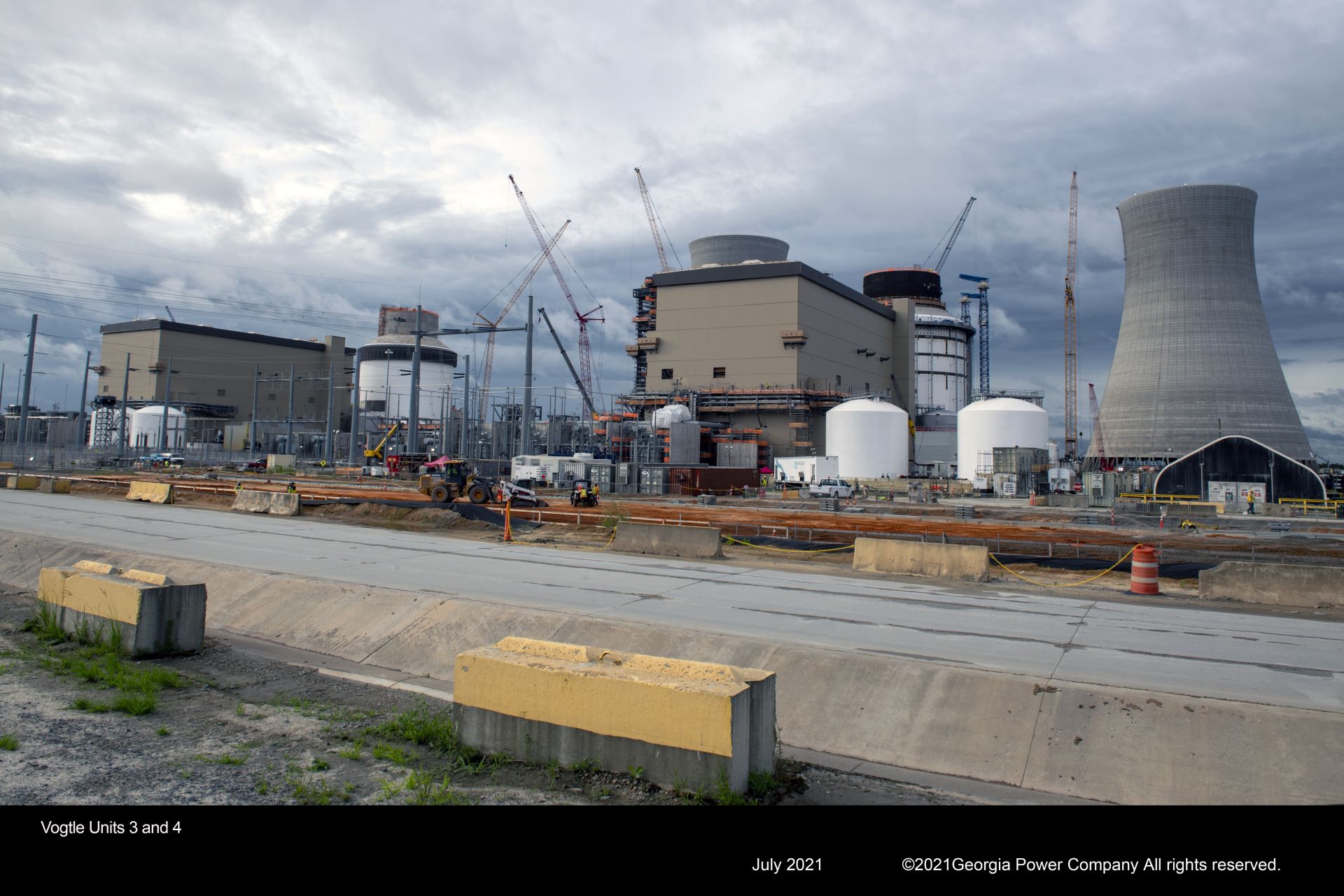
Georgia Power yesterday announced that due to 'productivity challenges' and the need for 'additional time for testing and quality assurance,' it has revised the schedule for the Vogtle-3 and -4 nuclear expansion project. The new schedule pushes back the Unit 3 in-service date to the second quarter of 2022 and the Unit 4 date to the first quarter of 2023—a three-to-four-month shift for each unit.
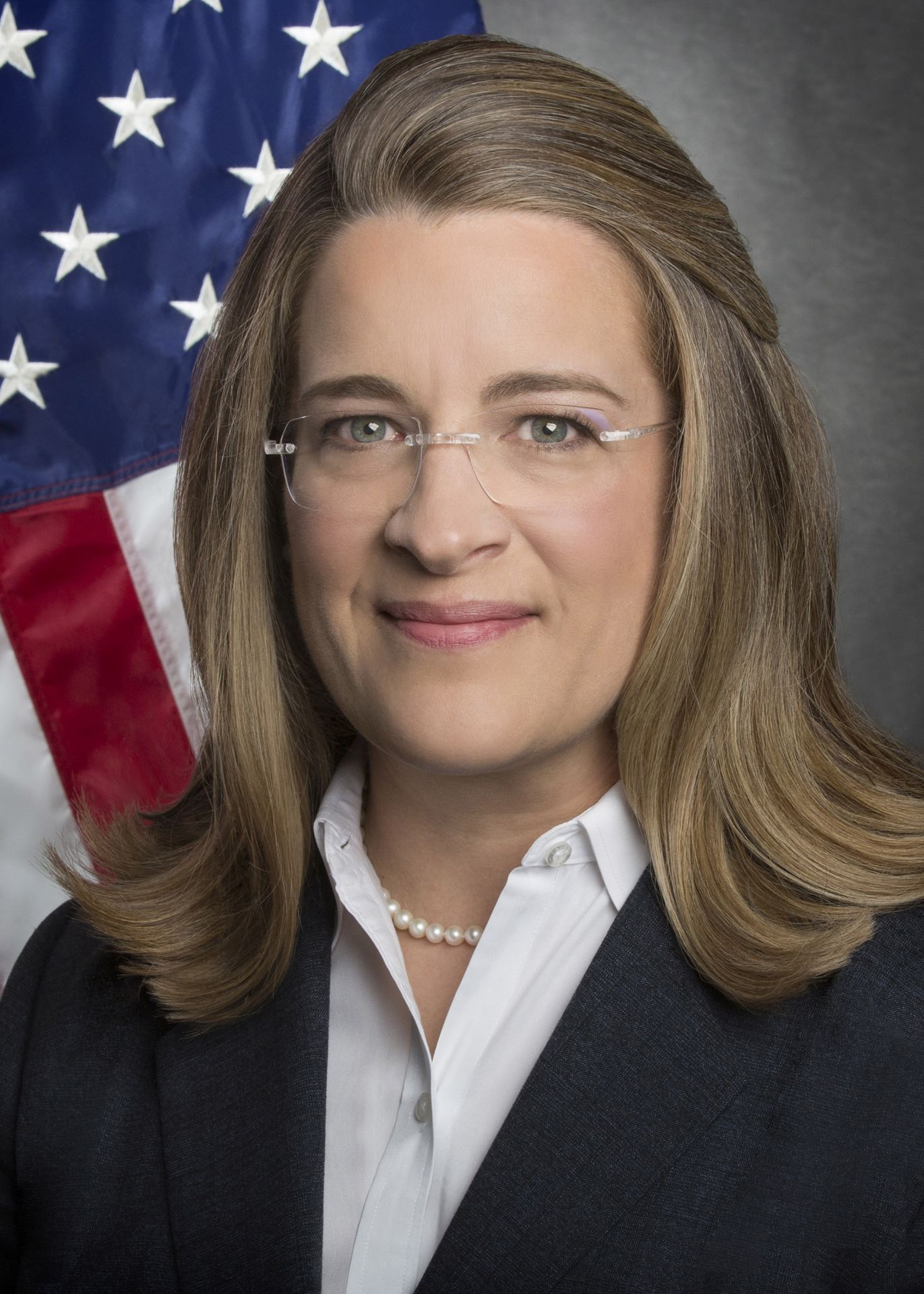
Caputo
The Nuclear Regulatory Commission’s Annie Caputo will depart the agency when her term expires at the end of this month, NRC Chairman Christopher Hanson said yesterday. Her departure will leave the five-seat panel with only three commissioners—the minimum number required for it to conduct business—as former chairman Kristine Svinicki resigned in January of this year.
At this writing, Caputo has not announced her post-NRC plans.
Remaining on the commission are two Democrats, Hanson and Jeff Baran, and one Republican, David Wright. President Biden has not named a replacement for either of the vacancies and can choose only one Democrat, since no more than three commissioners can be from the same political party.
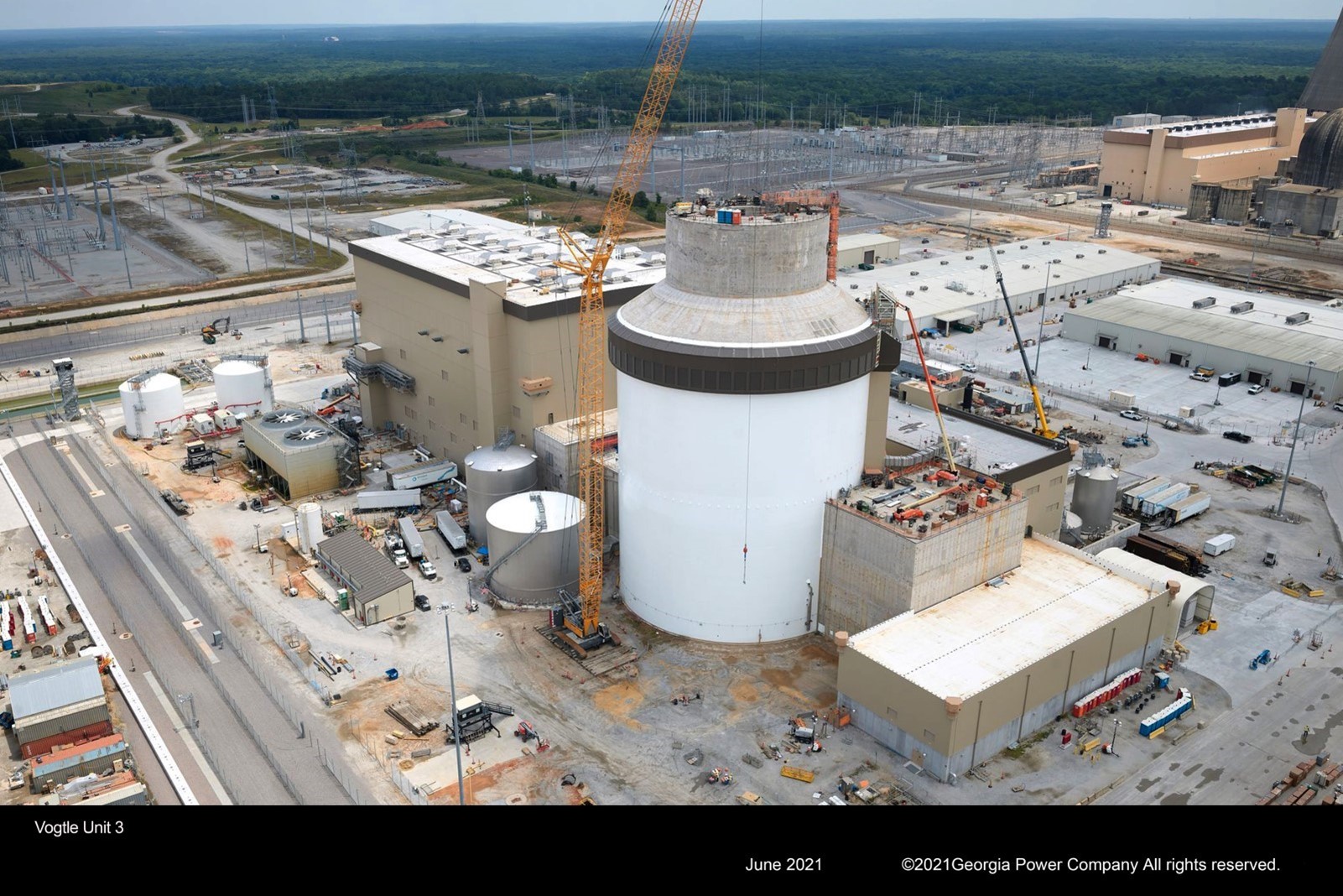
The Nuclear Regulatory Commission has launched a special inspection at the Vogtle new-build site to identify the errors that necessitated construction remediation work on Unit 3’s electrical cable raceway system.

Georgia Power recently pushed back its projected commercial operation date for Vogtle-3 from December of this year to January 2022, but now some engineering and financial experts are saying that this revised date is too optimistic.